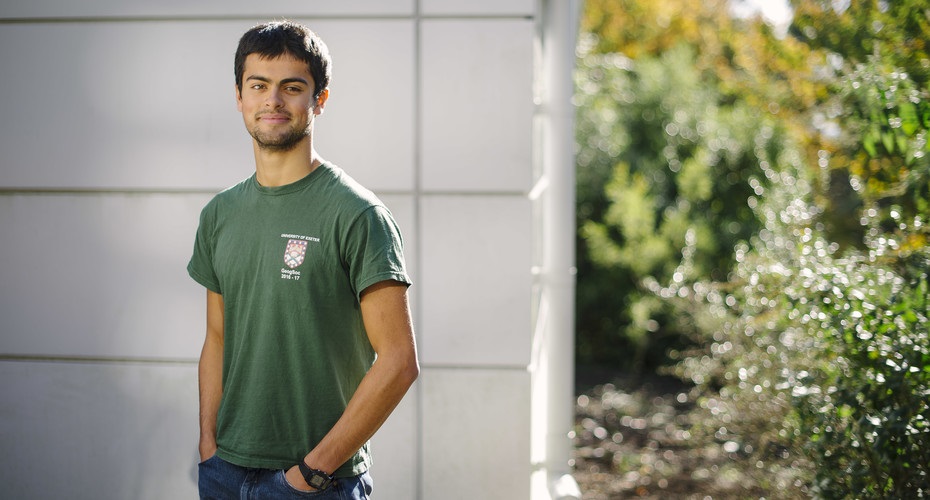| Degrees |
MPhil/PhD Computer Science |
|---|---|
| Duration |
| Start date | September, January or April |
|---|---|
| Location | Streatham Campus |
| Study modes | Full time and part time |
Overview
Our main areas of Computer Science research include Artificial Intelligence, Computer Vision, Cyber Security, Data and Network Science, Evolutionary Computing and Optimisation, High Performance Computing and Networking, and Machine Learning.
The departmental research webpages provide more comprehensive details about current research projects and details of individual staff research interests and publications can be found on our staff profiles pages as well as a list of our current postgraduate researchers. The department and researchers closely collaborate with a range of industrial partners, with the Impact Lab based at Exeter Science Park, and have opportunities to collaborate and contribute to the University’s membership of the Alan Turing Institute, the national institute for Data Science and AI.
![]()
Top 20 for Computer Science
20th in The Times and The Sunday Times Good University Guide 2024
![]()
Partner to the Alan Turing Institute and home to the Institute of Data Science and Artificial Intelligence
![]()
Excellent facilities spanning a wide range of machine types and software ecosystems
![]()
Exeter's Q-Step Centre for Applied Social Data Analysis integrates cutting-edge quantitative methods with substantive, real-world social science issues
Research overview

Our main areas of Computer Science research are:
- Artificial intelligence research areas focus on social network understanding, remote sensing, human-computer interaction, cognitive science and on the philosophical foundations of artificial intelligence and computer science.
- Computer vision research activities include visual attention, autonomous control, collaboration and decision strategies for cooperative robots, deep multi-modal embedding, graph neural networks etc.
- Cyber security research mainly focuses on formal methods, security/safety engineering, and software engineering with the aim to build secure, reliable, resilient software and hardware systems.
- Data and network science research the phenomena, intrinsic properties and real-world applications of complex networks (such as complex networks and human dynamics), which are often inspired by nature and occur in many real-world contexts including social, biological and neural networks.
- Evolutionary computing and optimisation research focuses on developing evolutionary algorithms, genetic programming, hyperheuristics, swarm intelligence and multi- and many- objective versions of these for problems such as hydroinformatics, bioinformatics, optimisation under uncertainty and interactive evolution.
- High performance computing and networking investigates the advanced computational and networking challenges associated with the future Internet, 5G mobile networks, cloud and edge computing, unmanned vehicles, and high performance computing.
- Machine learning research at Exeter spans the range of data, applications and methodologies from kernel methods to deep neural architectures and reinforcement learning applied to both continuous and discrete, graph-based data.
How to apply
Requirements for international students
International students need to show they have the required level of English language to study this course. The required test scores for this course fall under Profile A: view the required test scores and equivalencies from your country.
Fees and funding
Tuition Fees per year 2024/25
- Home: £4,786 full-time; £pro-rata part-time
- International: £25,500 full-time
For those studying for more than one year, our fees are expected to increase modestly in line with Consumer Price Inflation measured in December each year. More information can be found on our Student Finance webpages.
Tuition Fees per year 2023/24
- Home: £4,712 full-time; £pro-rata part-time
- International: £24,000 full-time
For those studying for more than one year, our fees are expected to increase modestly in line with Consumer Price Inflation measured in December each year. More information can be found on our Student Finance webpages.
Our research is widely supported by funding bodies including EPSRC, NERC, EU, Royal Society, Innovate UK, British Council, as well as leading organisations and industries such as the Met Office, IBM, BT etc. Take a look at our funded opportunities for further information about what is available.
Current available funding
Supervision
You can expect:
- High-quality research supervision to develop and nurture your potential
- A tailored supervision approach to help best suit your requirements
- Accessible supervisors who are enthusiastic about working directly with postgraduate research students
- Regular timetabled meetings with your supervisor
- 'Open door' policy to all postgraduate students - instant access to world-leading researchers who will share their expertise and ideas with you
- Regular meetings with your supervisory team, other members of your research group, and mentors
Academics and Supervisors
All students have a primary and a secondary supervisor who provide regular and high quality advice, support and direction in their academic endeavours. You will work closely with your supervisors to develop, investigate and write-up a project at the cutting edge of Computer Science and/or Data Science research. Visit our staff profiles for more information about individual research interests.
Pastoral Tutors
Each student will also be assigned a pastoral tutor who will take on a pastoral role and mediate on any problems that arise during the period of study. Your tutor will keep in regular contact and provide background stability and support.
PGR Director
The Computer Science Department PGR director Dr Chunbo Luo can be directly contacted if you have any inquiries from application to the award of your PhD or about your supervision. He also engages with with the college PGR administration team, and the wider PGR community in the University to achieve.
PGR Support team
The College of Engineering, Mathematics and Physical Science has a dedicated PGR support team that supports our postgraduate research students during their study with us. The team promotes intellectual and social contact between research students in all our disciplines to foster a vibrant research community within the College.
Facilities
All research students of the department will be given an up-to-date or specialised computer for daily research work. The department also provides all PGR researchers with the access to a modern GPU cluster and high performance computing cluster. The department also has access to ISCA, the University supercomputer and facilities for 3D visualisation, virtual reality rendering and alternative architectures (e.g. ARM, Mac and Raspberry Pi) machines. See our computing systems webpage for further information.
The University library maintains extensive holdings in our discipline, extensive audio-visual collections and full-text papers published in all major journal and conference titles by IEEE, ACM, Springer etc. The majority of these are available electronically through the Library website and database, allowing fast and convenient access to this resource.
The Innovation Centre and Harrison Building offer dedicated postgraduate common rooms with computer facilities and a number of study carrels to provide quiet study space for research students.











